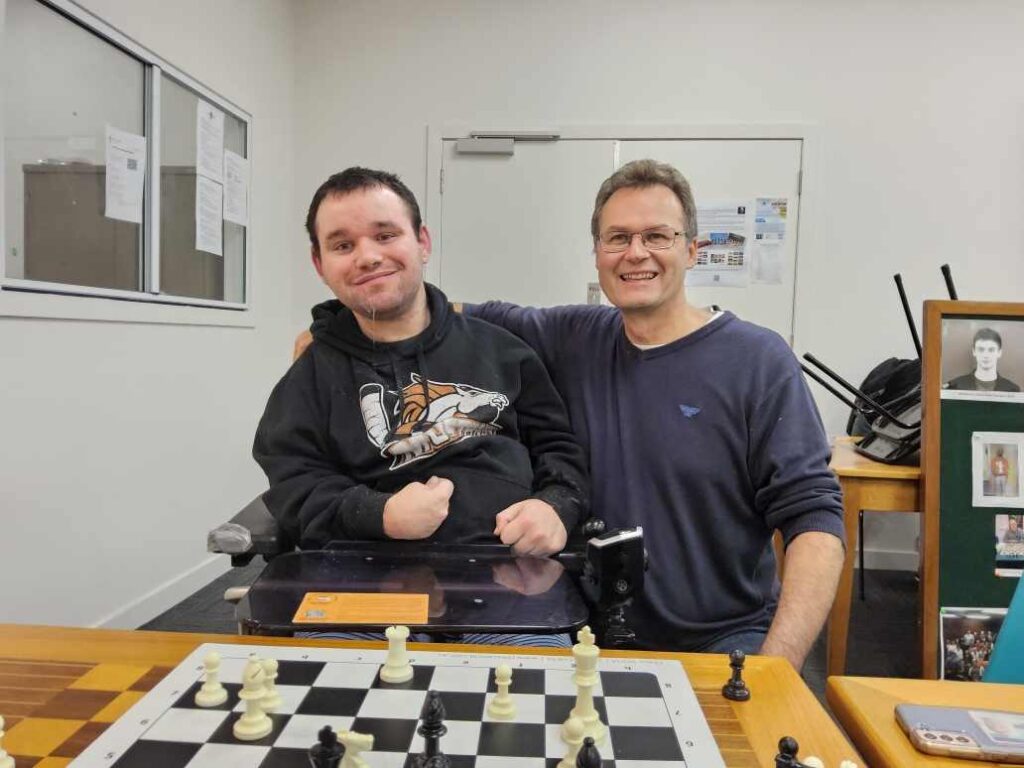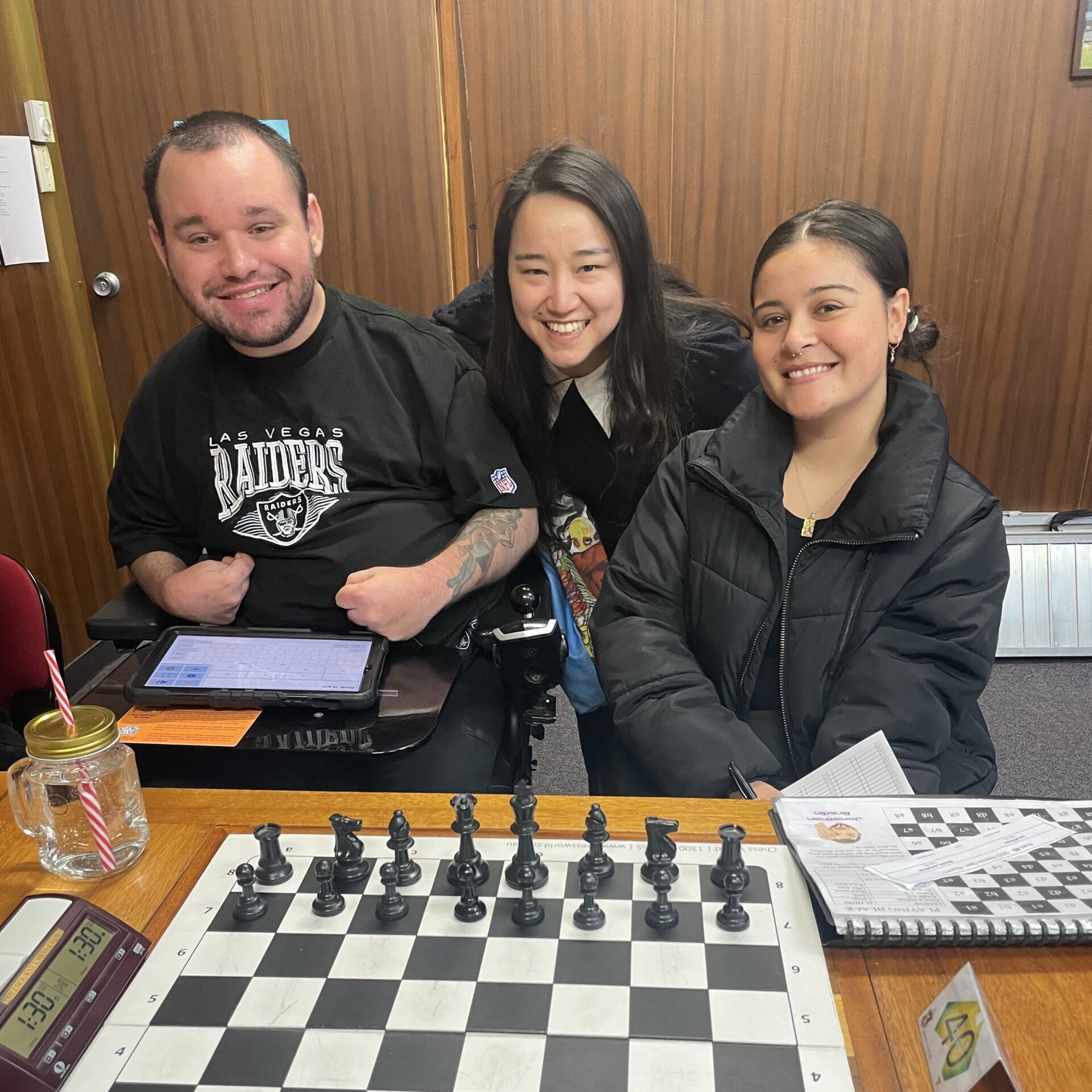Chess has been a constant companion in my life since learning the game at 10 years old. From humble beginnings at my primary school chess club and cherished matches with my late grandfather, chess has left an undeniable mark on my heart. Despite a 20-year period of casual play, primarily online, I have always found myself drawn to the strategic brilliance and absence of luck inherent in chess. This year, I made a commitment to take chess seriously. Today, I share anecdotes of my journey, reflecting on the memories of playing with my grandfather while also shining a light on the heartwarming embrace of the chess community, which has welcomed me with open arms.
The foundation of my chess journey was laid during a lunch break over two decades ago when I accompanied a friend to the chess club at our primary school. Eager to immerse myself in this new world, we asked our school teacher one afternoon for permission to skip a class, allowing my friend to teach me the basic rules of the game. This interaction ignited a passion that would stay with me for years to come.
As a teenager, I found solace and companionship through regular chess matches with my beloved grandfather. Together we would spend countless hours engaged in intense battles of wit and strategy. Those hours and days not only strengthened our bond but also my understanding of the game. Over the next two decades, my chess endeavours remained casual, primarily taking place online. Although my interest in chess was unwavering, poker stole my focus. Ultimately, I was driven by the potential for monetary gain. Yet I always recognised that chess held a special place in my heart, a game where the best player emerges victorious, unaffected by chance.
This year marks a turning point in my chess journey. Fueled by a renewed determination, I committed to chess in a big way. I now dedicate one day a week to playing at a local chess club, with members of all skill levels and demographics in a face-to-face setting. The experience of sitting across from opponents, observing their every move, and strategising in real-time is vastly different to the online chess world (in a positive way!). Recognising the need for continuous improvement, I have been engaging almost daily in chess theory, tactics, and endgame strategies. Further, I have enlisted coaching services from experienced players which has been invaluable. Their insights and personalised feedback has helped me refine my skills and reshaped my attitude towards the game. Amidst the dedication and progress, I have faced moments of frustration. Last month, I chose not to study as I grappled with disappointment and self-criticism. Now, however, I am choosing to push through and view them as opportunities for growth and self-reflection. After all, it is human to feel the full spectrum of emotions but how we come out of these experiences is what matters. These setbacks serve as reminders to remain focused and to nurture the discipline required for the desired outcome.
One of the most heartwarming aspects of my chess journey so far is the warm embrace and inclusivity of the chess community. Despite the presence of a disability, I have been welcomed with open arms, recognised for my dedication, and embraced as a valuable member of the community. Whether engaging with fellow players at the chess club or participating in online forums, I have encountered a supportive network that celebrates my passion for the game, appreciating me for who I am, regardless of any physical limitations. Their acceptance and encouragement not only empowers me to believe in myself but also affirms that I do deserve to be in these spaces and that people with disability belong anywhere that we want to be.

FIDE (Fédération Internationale des Échecs, or International Chess Federation), the international governing body for chess, has taken significant steps to ensure inclusivity and support for players with disabilities. FIDE has implemented specific regulations that allow individuals with disabilities to receive the necessary assistance while playing chess. These measures ensure that players with physical or cognitive limitations can fully participate in tournaments and competitions, fostering an environment of equal opportunities for all chess enthusiasts. Whether it involves providing accessible playing venues, accommodating assistive devices, or allowing the presence of personal assistants or interpreters, FIDE’s commitment to inclusivity helps create a level playing field for players with disabilities, recognising their unique talents and contributions to the chess community. This inclusivity not only promotes diversity within the chess world but also exemplifies FIDE’s dedication to upholding the values of fair play and sportsmanship on a global scale.
As I write this blog, my grandfather lingers in the front of my mind. With each step I take in this journey, I remain grateful for the moments we shared over this game and I hope I have made, and continue to make him proud. Each minute, hour, day, and week I dedicate to this game, I am one step closer to becoming the player I have always envisioned. My chess journey is not merely a pursuit of victory; it is a tribute to the past, a celebration of the present, and an unwavering belief in the potential of what lies ahead.
